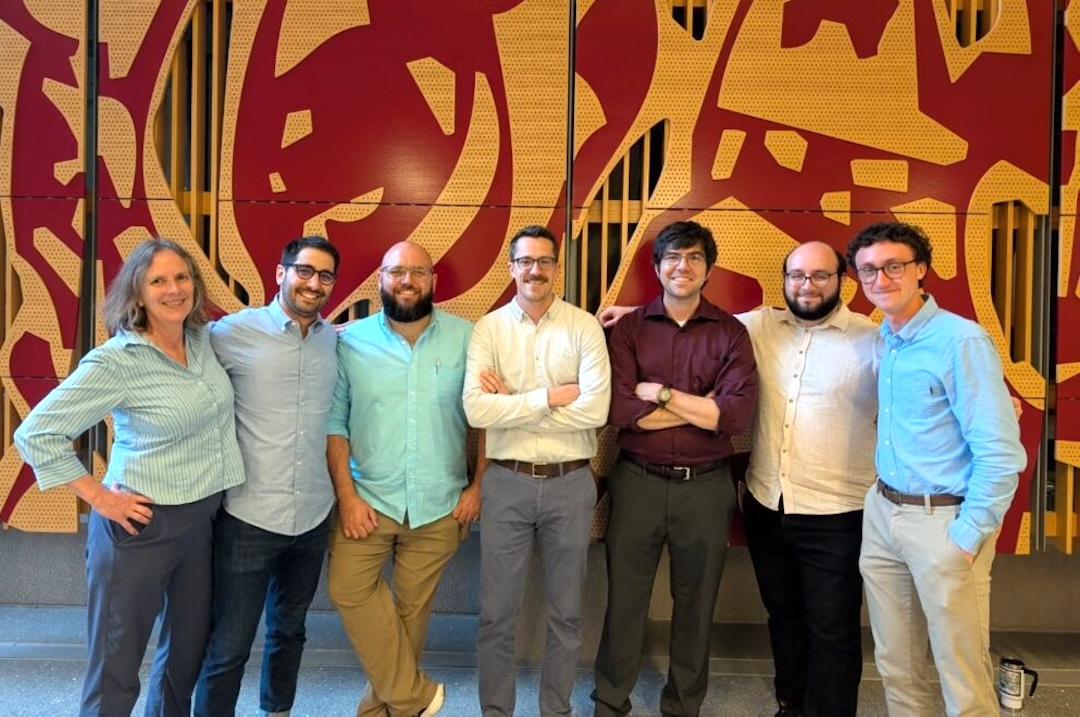
Scholars from around the globe recently attended Penn State’s Consortium on Moral Decision-Making conference on political polarization and moral decision-making.
Organizer Daryl Cameron, director of the consortium, Sherwin Early Career Professor in the Rock Ethics Institute, and associate professor of psychology, said scholars from psychology, political science, philosophy, anthropology, sociology, communications, and media studies all gathered both virtually and in person for the event.
“The goal of the conference was to bring together researchers across disciplines to understand political morality and host discussions addressing political divisions and moral reasoning,” Cameron said.
Presenters included Penn State alumni Michael Pasek, former Ph.D. candidate in psychology who is now an assistant professor at University of Illinois at Chicago; and Joseph Phillips, former Ph.D. candidate in political science who is now faculty at the Cardiff University in Wales.
Additional Penn State speakers included Sean Laurent (Psychology), Daniel DellaPosta (Sociology), Chris Beem (McCourtney Institute for Democracy), Chris Skurka (Bellisario College of Communications), and Anne Pisor (Anthropology).
Other presentations included speakers from University of North Carolina at Chapel Hill, Michigan State University, Seattle University, Northwestern University, University of Pittsburgh, University of Utah, Duke University, University of Illinois, University of Delaware, and Yale University. Additionally, international speakers hailed from University of Kaiserslautern-Landau.
In addition to presentations on how to think about conflicting moral values and what this means for political disagreements and voting intentions, discussions also highlighted the connection between political polarization and communications, with discussions about political emotions, media, and policy, including how social media shapes and reflects our political identities.
There were two interdisciplinary panels cutting across social sciences and philosophy, with the afternoon one focusing on different stances on how to think about and address affective polarization between political parties and whether and how this is a worthwhile goal to achieve.
For more about the event, see the conference program that includes details about the speakers, their titles and abstracts, and their views on the puzzles and potential for bringing. Additionally, videos of the presentations can be found at the Social Science Research Institute YouTube page (see playlist here) as well as the Consortium on Moral Decision-Making website, along with more images here. Here are some highlights from among the presentations:
- Michael Pasek (Psychology, UI Chicago) on religious nationalism – received his PhD in Psychology from Penn State
- Joseph Phillips (Political Science, Cardiff) on polarization and democracy – received his PhD in Political Science from Penn State
- Sean Laurent (Psychology, Penn State) about voting and hypocrisy
- Chris Skurka (Penn State Bellisario College of Communications) on “News finds me” mindset
- Daniel DellaPosta (Penn State Sociology and Criminology) on why voters choose extreme candidates
- Keith Payne (Psychology, UNC Chapel Hill) on his book “Good, Reasonable People”
- An interdisciplinary panel on moral divisions with Anne Pisor (Penn State Anthropology), Scott Clifford (Political Science, Texas A&M), Chris Skurka (Penn State Bellisario College of Communications), William Brady (Kellogg School of Business, Northwestern), Emily Kubin (Psychology, UNC and University of Kaiserslautern-Landau), and Fade Eadeh (Psychology, Seattle University)
- An interdisciplinary panel on polarization and empathy with Mark Brandt (Psychology, Michigan State), Hannah Read (Philosophy, Duke), Samantha Moore-Berg (Psychology, University of Utah), Robert Stise (Communications, Delaware), Daniel DellaPosta, Joseph Phillips
For more information and to get involved in the Consortium on Moral Decision-Making, contact Cameron.
The consortium is being supported by the Penn State’s Social Science Research Institute and The Rock Ethics Institute in the College of the Liberal Arts, with additional funding from the McCourtney Institute for Democracy, Department of Philosophy, and Department of Psychology.